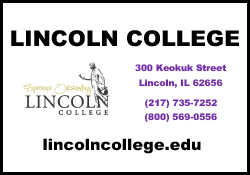AT&T court fight with U.S. Justice Department heads into
closing arguments
 Send a link to a friend
Send a link to a friend
 [April 30, 2018]
By Diane Bartz [April 30, 2018]
By Diane Bartz
WASHINGTON (Reuters) - Lawyers for the U.S.
Justice Department and AT&T will give closing arguments on Monday in a
trial to determine if the wireless giant, owner of pay TV provider
DirecTV, will be allowed to buy movie and TV show maker Time Warner.
The Justice Department sued to block the $85 billion deal, saying it
would lead to higher prices for rival pay TV companies.
The government has argued that AT&T viewed the merger as a way to
convince viewers to stick with pay TV instead of moving to cheaper
online providers, at one point quoting from a report in which an AT&T
executive said that buying Time Warner would allow AT&T to slow the
decline of pay TV subscriptions, which was described as a "cash cow."

AT&T's satellite television service DirecTV lost 187,000 traditional
U.S. video customers in the first quarter of 2018.
The judge's decision, which is expected in several weeks, will guide
dealmakers on how aggressive they can be in buying suppliers, what is
known among antitrust people as a vertical merger. Until this tie-up,
vertical deals were largely considered approvable by regulators.
Two key witnesses at the trial were AT&T Chief Executive Randall
Stephenson and Time Warner CEO Jeff Bewkes, who is retiring if the
transaction goes through.
The two executives argued that marrying AT&T's granular information
about customers with Time Warner's ability to create compelling video
would allow them to advertise more effectively, giving the merged
company a fighting chance to compete with internet advertising titans
like Facebook and Google.
[to top of second column] |

Chief Executive Officer of AT&T Randall Stephenson (L) walks off the
stage with David McAtee (C), SEVP and General Counsel for AT&T, and
Daniel Petrocelli (R), counsel from O'Melveny & Myers LLP., after a
press conference in New York City, New York, U.S. November 20, 2017.
REUTERS/Shannon Stapleton

They also denied as "ridiculous" and "absurd" the notion AT&T would be reluctant
to license Time Warner content like CNN or March Madness basketball to other pay
TV rivals or to cheaper online video companies -- a key government argument.
In hopes of preventing a court fight, AT&T proposed that for seven years it
would submit to third-party arbitration any disagreement with distributors over
the pricing for Time Warner's networks and promise not to black out programming
during arbitration.
But smaller pay TV rivals called as government witnesses argued that this was
inadequate. Warren Schlichting, group president of Dish Network's Sling TV,
argued AT&T's offer was inadequate because it was limited to 7 years and HBO is
not part of the proposal.
(Reporting by Diane Bartz, Editing by Franklin Paul)
[© 2018 Thomson Reuters. All rights
reserved.] Copyright 2018 Reuters. All rights reserved. This material may not be published,
broadcast, rewritten or redistributed.
Thompson Reuters is solely responsible for this content.

 |